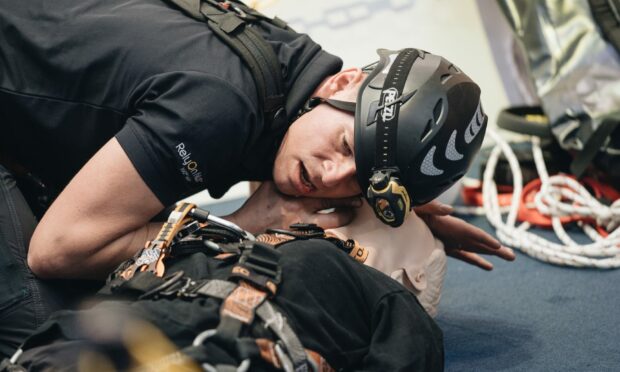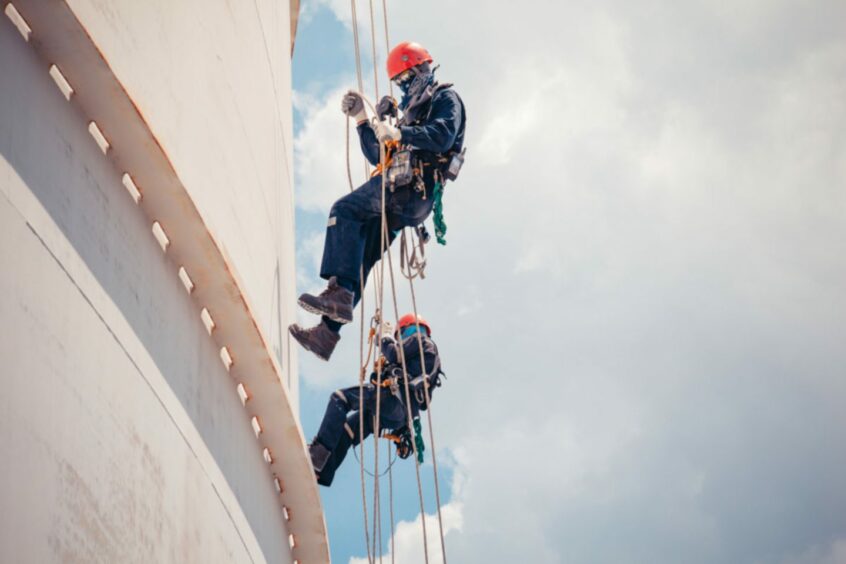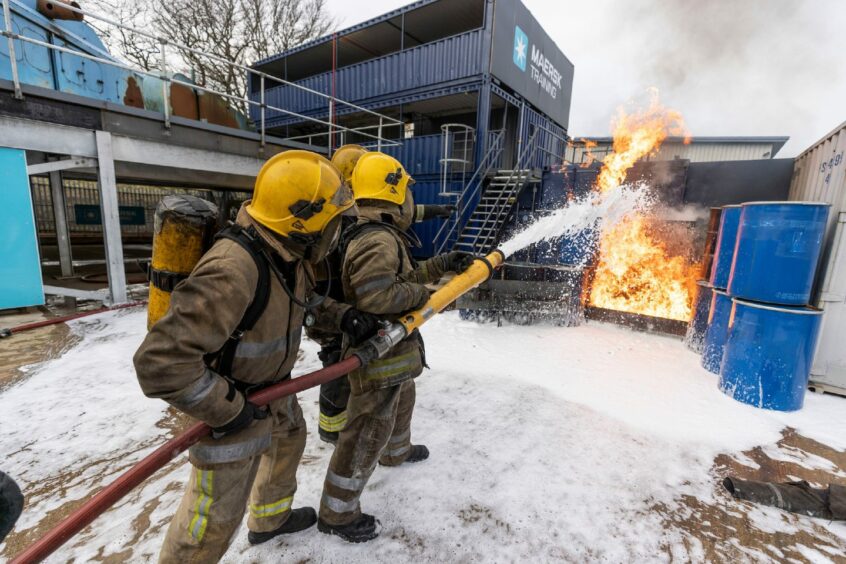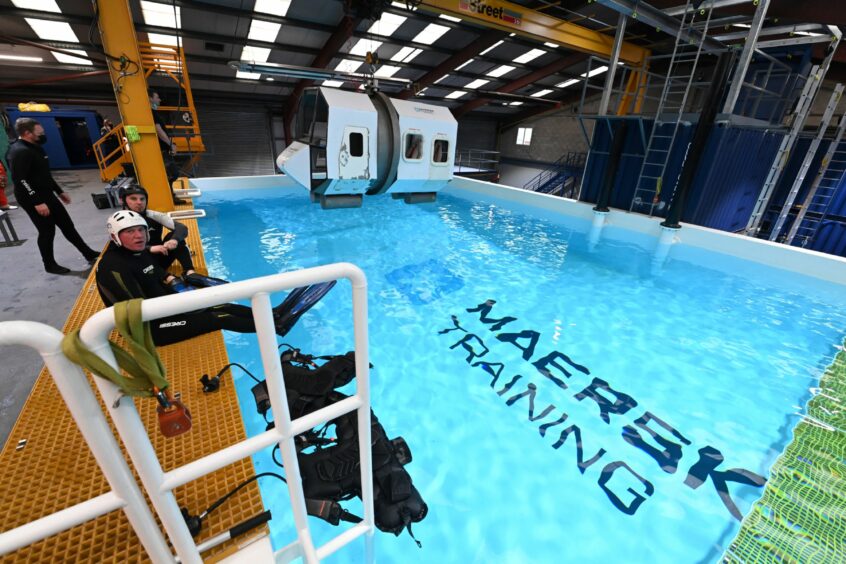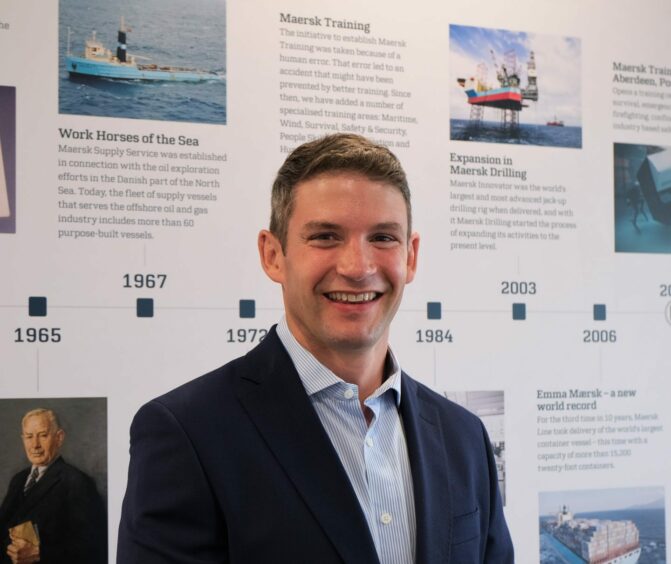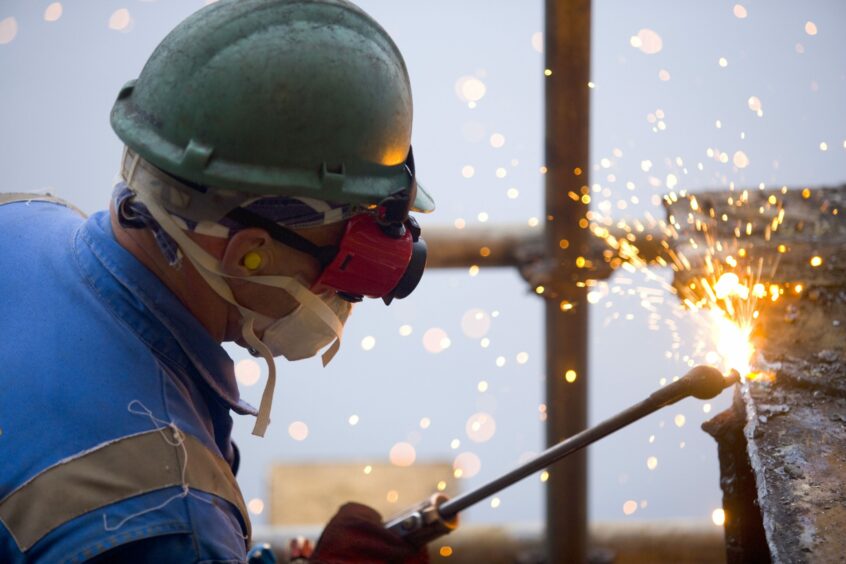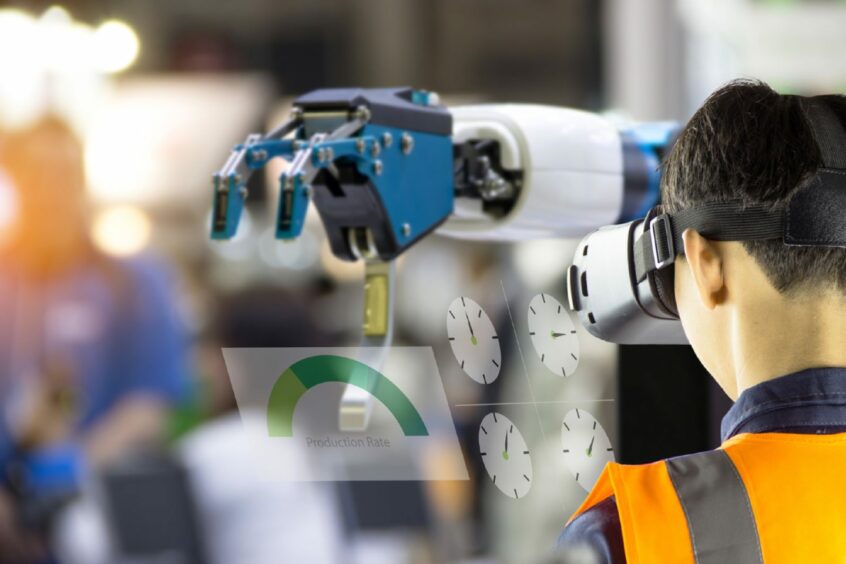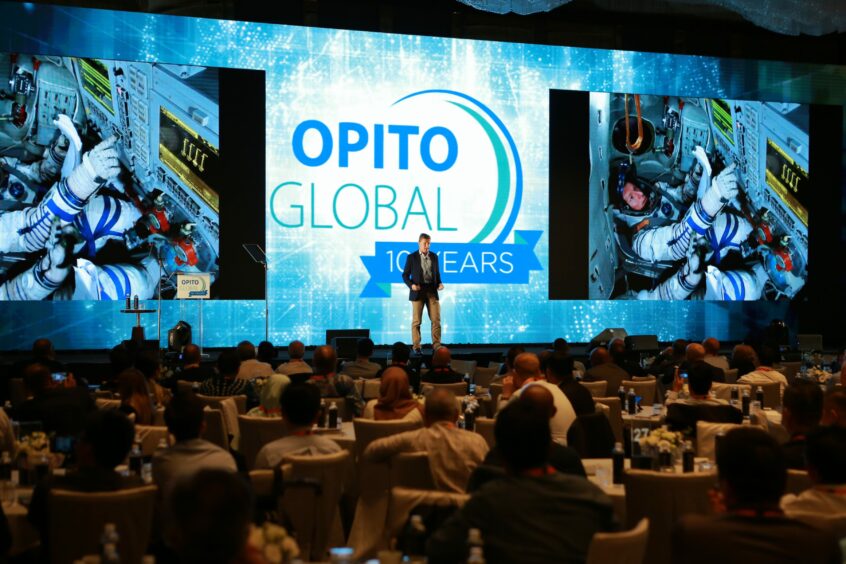RelyOn Nutec and Maersk Training are among north-east companies training the energy workforce of today for tomorrow.
Lee Fenton, UK commercial director for RelyOn, said the business offered a wide range of courses, including for oil and gas, as well as emerging green technologies. Through its UK headquarters in Aberdeen and regional centres on Teesside and in Liverpool, RelyOn provides practical and digital safety training to thousands of workers.
Mr Fenton added: “RelyOn’s award-winning approach emphasises quality by combining hands-on, in-person training, adaptive digital learning technology and live simulations. This ensures that whatever the course topic, delegates are receiving information though a range of mediums designed to confirm that content is retained.”
Opito’s annual checks keep everything in harmony
Much of RelyOn’s basic safety training is annually audited and approved by energy industry skills body Opito in order to make sure anyone working in an offshore environment is undertaking the same basic training to the same standard.
Mr Fenton said: “Over the years RelyOn has worked in close collaboration with Opito to bring these standards to life. As just one example, RelyOn piloted Opito’s new helicopter-refuelling course in 2021. It ensures that helicopter refuelling on offshore assets is consistently completed safely and effectively.”
With the average UK oil and gas worker age currently sitting at 56, the country cannot rely solely on existing industry personnel to power the transition.
Mr Fenton added: “The skills development of a new workforce that has the appetite to work in renewables, or those who wish to join the oil and gas sector, will be the driving force behind energy security in the UK.
“By working hand in hand with Opito, RelyOn can see where the biggest knowledge gaps will emerge, allowing it to react and tailor training and standards to the unique needs of a rapidly growing industry.”
Maersk Training has a long history working with accreditation partners including Opito and the Global Wind Organisation (GWO). The firm provides safety, survival, technical and simulator-based training. This includes mandatory training for offshore workers, such as how to escape from a helicopter in the event of ditching on water, lifting operations, major emergency management, firefighting, technical training and blade repair.
Paul Hudson, director at Maersk Training UK, said: “We pride ourselves on our ability to work as a training partner to clients, utilising our experience of offshore sectors and the latest developments in learning and development. With any safety-critical industry, it’s absolutely imperative there is a robust control framework in place to ensure standards are understood and maintained. Our partnership with Opit0 began in the early 2000s.”
The pace of the energy transition is picking up, Mr Hudson said, adding: “We are ready to support the already-skilled and experienced oil and gas workforce in the UK to transition effectively. We will also provide the next generation with the necessary training and competencies that will give them a solid grounding for their careers, and at the same time keep high-skilled jobs in the UK.”
More than 200 full-time instructors globally
Maersk Training currently operates at nine international locations, with more than 200 full-time instructors worldwide. In the UK, there are five sites – one in Aberdeen, another in Portlethen and training centres in Newcastle, Grimsby and Lowestoft.
As well as offering face-to-face learning opportunities – for example, safety and survival courses, emergency management and simulator-based training – the firm also provides virtual delivery and e-learning courses, which customers can complete remotely.
Mr Hudson said: “Digital delivery of courses has gained great momentum in the past several years and it is certainly an area of the overall training market that will continue to grow. Again, Maersk Training works very closely with Opito and other accreditation bodies, including GWO, when designing and producing digital content.”
What is Opito and what does it do?
Opito is a global organisation which has set standards and provided courses for industry and oil and gas training providers for several decades.
It is now diversifying to take in offshore renewables too.
The Portlethen-based, not-for-profit safety and skills body has a network of more than 230 approved training centres spread across 52 countries – and their services are much in demand. They currently train nearly 500,000 workers to Opito standards annually.
This is up from 375,000 people just two years ago, and the organisation says this reflects growing global demand for a standardised energy skill set.
‘Heritage’ skills can be adapted to new energy technologies
Opito operations director Alex Spencer told The Press and Journal net-zero is the catalyst needed to use “heritage” energy skills in a fresh way to produce new energies.
He added: “It also inspires the birth of different skills, capitalising on ever-evolving technologies. It’s vital that appropriate and effective training standards and qualifications exist to streamline these changes and ensure needs are met safely.
‘We live and breathe safety and skills’
“This is where Opito comes in. We live and breathe safety and skills – it is in our DNA and is what we have done for over 50 years. Working together with the workforce and industry, we have been front and centre of skills standards and products to streamline competency and nurture safety globally. Standardisation is crucial to safety – an absolute priority in the energy industry.”
Mr Spencer went on: “Until recently, our training was focused on the offshore hydrocarbon sector. We are now playing our role across wider renewable energies, including offshore wind – fixed and floating – and the emerging technologies of hydrogen, and carbon capture and storage.
“As we do this we ensure our strong safety culture remains supreme. No matter where you are employed, you have the right to go to work and return home safely to your loved ones.”
Training revolution
Just as workplaces have moved from fixed locations to more dynamic, collaborative and remote working, so too has training.
Mr Spencer said: “We’ve recognised the way learners want to learn has changed. Location specific, face-to-face training is often not necessary. We have worked closely with our global network of training centres to demonstrate you can combine digital and blended learning. This has resulted in virtual learning platforms and e-learning products which simulate the in-person classroom, and offer choice and flexibility to learners.
“It is a space that is continuously evolving. Immersive learning experiences like virtual reality and augmented reality can create an interactive learning environment within the classroom, and this offers efficiency benefits for both the learner and training centres.
“It’s no surprise this learning transition is happening at the same time as our energy transition. Multiple other journeys are happening concurrently which will all have an impact. For instance, the digitalisation of the workplace.
Technology-driven change is transforming every business, Mr Spencer said, adding: “Our global quality assurance teams are committed to supporting centres with how they can continue to improve and, therefore, expand and diversify their own offering.
Transferability of skills ‘paramount’
“This means supporting them with the optimum skills, training and standards to thrive across a range of industries. Ensuring transferability of these skills, domestically and internationally, is paramount.”
Last year Opito published the North Sea Transition Deal Integrated People and Skills Strategy, on behalf of the oil and gas industry.
Mr Spencer said: “This as a unique opportunity to bring together the offshore energy sectors, and meet the commitments of the deal, while also creating a joined-up approach to people and skills right across the offshore energy industry.
Opito’s action plans can create global ‘blueprint’
“The strategy includes a series of action plans, including aligning offshore energy standards, meeting future skills demand, developing workforce skills, and improving skills and data intelligence.
“Deliverables including the Energy Skills Intelligence Hub and ‘energy skills passport‘, have the potential to transform workforce mobility, to ensure… (training) demands are met and create a blueprint which can be rolled out globally.”
According to North Sea Transition Deal estimates, offshore energy sectors could support up to 350,000 jobs by 2050 – an increase of around 196,400 on today.
Mr Spencer said: “Our My Energy Future science technology engineering and mathematics (Stem) programme is investing to build a robust talent pipeline.
“And for over 20 years we’ve also delivered Ogtap (the Oil and Gas Technical Apprentice Programme) on behalf of industry to support over 2,000 apprentices to start their energy careers.
“Given net-zero is a nationwide target, there is going to be strong competition for these Stem skills. We need to show young people why they should invest in an exciting all-energy career.”
Recognising the importance hydrocarbons continue to play in our energy mix, we should be proud of our multi-skilled workforce.”
Opito’s operations director said a safe and skilled workforce was fundamental to realising a sustainable future. He added: “Net-zero is our shared long-term goal but we must balance this with energy security. Recognising the importance hydrocarbons continue to play in our energy mix, we should be proud of our multi-skilled workforce.
“Change is here, and I am optimistic and excited our work today will ensure the global energy workforce is ready for tomorrow.”
